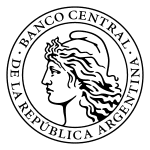BCRA
Banco Central de la República Argentina (BCRA)
Argentina’s economy, like many others, is significantly influenced by its central bank, the Banco Central de la República Argentina (BCRA). As the country’s main financial institution, the BCRA is tasked with various roles aimed at fostering economic growth, controlling inflation, and ensuring the stability of the financial system. In this post, we will explore the primary functions of the BCRA, its influence on Argentina’s economy, and how it plays a vital role in managing financial challenges.
What is Banco Central de la República Argentina (BCRA)?
The Banco Central de la República Argentina (BCRA) was established in 1935 to manage Argentina’s monetary and financial policies. The institution operates as an independent body that collaborates with the government to ensure economic stability. The BCRA’s decisions have a direct impact on inflation rates, exchange rates, and overall economic health.
Monetary Policy Management
One of the most critical functions of the BCRA is to regulate the country’s monetary policy. By controlling the money supply, interest rates, and inflation, the BCRA strives to maintain price stability. In Argentina, where inflation has been a recurring issue, the BCRA’s focus is on reducing inflation through various policy instruments.
Inflation Control
Inflation has been a persistent issue in Argentina, and the BCRA plays a key role in combating this by adjusting interest rates and other monetary tools. The central bank is also responsible for implementing measures to control currency depreciation, which is vital for maintaining citizens’ purchasing power.
Foreign Exchange Management
The BCRA monitors the exchange rates and oversees Argentina’s foreign reserves. It manages the country’s foreign currency holdings to stabilize the peso and minimize the effects of currency fluctuations. This ensures that the country’s international trade and debt obligations are met without excessive currency volatility.
Financial System Stability
The BCRA has an oversight role in maintaining the stability of the financial system. It supervises banks, ensuring they adhere to regulatory standards and are adequately capitalized to handle economic downturns. This is vital for preventing banking crises, which can have widespread economic repercussions.
Issuing Currency
The BCRA holds the exclusive right to issue the Argentine peso, the country’s national currency. The bank is responsible for ensuring a stable currency supply that matches the economy’s needs. By carefully managing the issuance of pesos, the BCRA helps control inflation and support economic growth.
Debt Management
The BCRA collaborates with the Argentine government to manage both internal and external debts. It ensures that the country can meet its debt obligations without jeopardizing financial stability. Effective debt management is crucial for securing international loans and maintaining investor confidence.
Promoting Economic Growth
By implementing policies aimed at reducing inflation and maintaining financial stability, the BCRA indirectly supports economic growth. A stable monetary environment encourages investment, business development, and employment, which are essential components of a growing economy.
Challenges Faced by the BCRA
Despite its crucial role in stabilizing the Argentine economy, the BCRA faces several challenges, including:
- Inflation Control: Inflation in Argentina has historically been high, and controlling it remains one of the BCRA’s toughest tasks.
- Currency Depreciation: The devaluation of the Argentine peso continues to challenge the BCRA, which must constantly intervene in foreign exchange markets to stabilize the currency.
- External Debt: Managing Argentina’s external debt is a complex task that requires careful balancing of resources, especially during periods of economic crisis.
The Banco Central de la República Argentina (BCRA) plays a fundamental role in Argentina’s financial and economic landscape. From managing monetary policy and controlling inflation to ensuring the stability of the financial system, the BCRA is at the forefront of efforts to promote economic stability. However, with inflation and currency volatility being persistent issues, the BCRA’s tasks are far from easy. Its ability to effectively navigate these challenges will continue to shape Argentina’s economic future.









